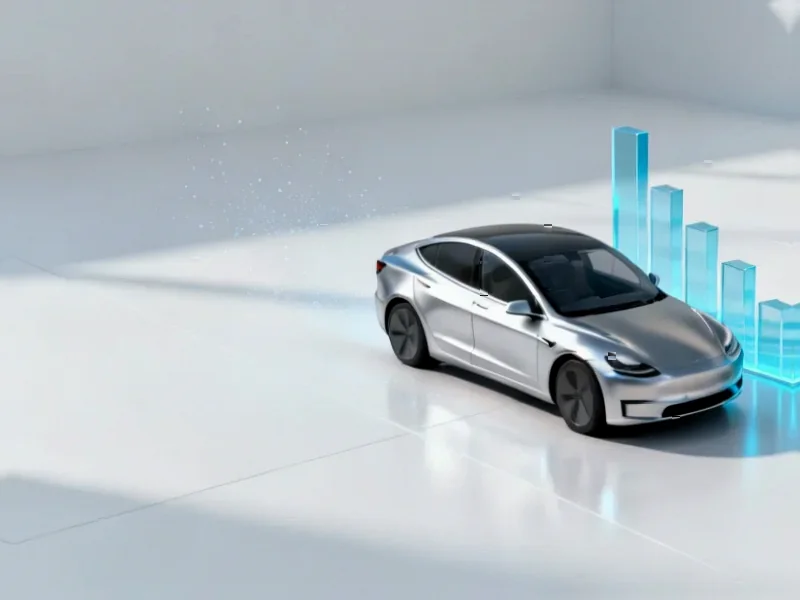According to DCD, Elon Musk’s SpaceX is exploring a potential acquisition of satellite communications company Globalstar, with unnamed sources familiar with the matter revealing early-stage conversations between the companies. The news caused Globalstar shares to surge 24% following the report, adding to speculation about a deal that could value the company above $10 billion – nearly double its previous $5.3 billion market capitalization. Globalstar, which operates 31 low-Earth orbit satellites with 26 more planned for launch by SpaceX, currently has a significant partnership with Apple that includes $1.5 billion in funding from the tech giant and allocation of 85% of Globalstar’s network capacity to Apple’s iPhone communication services. This potential acquisition comes three years after Musk previously pitched Apple on using Starlink infrastructure instead, suggesting a strategic shift in SpaceX’s approach to satellite-to-smartphone connectivity.
The Spectrum Play Behind the Acquisition
SpaceX’s interest in Globalstar represents more than just adding satellite assets – it’s a strategic move to control valuable spectrum rights that are becoming increasingly scarce. Globalstar holds terrestrial and satellite spectrum licenses in the 2.4 GHz band that are particularly valuable for direct-to-device services. By acquiring these rights, SpaceX could bypass complex spectrum sharing arrangements and regulatory hurdles that often delay satellite connectivity deployments. This approach mirrors SpaceX’s recent $17 billion agreement with Echostar for terrestrial spectrum assets, showing a pattern of strategic spectrum accumulation that positions SpaceX as both a satellite and terrestrial connectivity provider.
The Inevitable Apple Conflict
The most fascinating aspect of this potential acquisition is how it positions SpaceX directly against Apple, despite their previous courtship. When Apple chose Globalstar over Starlink three years ago, it created a natural division in the market. Now, by potentially acquiring Apple’s satellite partner, Musk would essentially force Apple to either renegotiate their partnership on SpaceX’s terms or seek alternative providers. Given Apple’s $1.5 billion investment and reliance on Globalstar’s network capacity, this creates immediate leverage for SpaceX in future negotiations. The timing is particularly strategic as Apple’s emergency SOS feature has proven successful, making satellite connectivity a expected feature rather than a luxury in premium smartphones.
Accelerating Satellite Market Consolidation
This potential acquisition signals the beginning of a major consolidation phase in the satellite connectivity sector. With players like AST SpaceMobile, Skylo, Lynk, and Iridium all competing for direct-to-device dominance, SpaceX’s move to acquire an established operator rather than build from scratch demonstrates the urgency to capture market share quickly. The satellite-to-smartphone market is reaching an inflection point where scale and spectrum ownership will determine winners, and SpaceX appears to be positioning itself as the infrastructure provider to multiple smartphone manufacturers and carriers. This mirrors the pattern we saw in the early days of cellular networks, where infrastructure providers eventually consolidated into a handful of major players serving multiple carriers.
The Regulatory Battle Ahead
Any acquisition of this magnitude will face significant regulatory scrutiny, particularly given SpaceX’s growing dominance in multiple space-related sectors. Regulators will likely examine whether combining Starlink’s extensive satellite constellation with Globalstar’s spectrum rights creates anti-competitive conditions in the emerging satellite-to-device market. Additionally, the international nature of satellite communications means multiple countries’ regulatory bodies will need to approve the transfer of spectrum licenses. The timing of this leak – whether intentional or accidental – could complicate regulatory approval by inflating Globalstar’s valuation and drawing attention to the deal before formal negotiations are complete.
Redefining Connectivity Economics
If this acquisition proceeds, it could fundamentally change the economics of satellite connectivity. SpaceX would control both the largest satellite constellation (Starlink) and specialized spectrum optimized for direct-to-device communication. This vertical integration could enable SpaceX to offer wholesale capacity to multiple mobile network operators globally, essentially becoming the “backbone provider” for satellite connectivity much like cloud providers serve multiple internet services. Gwynne Shotwell’s comments about “providing wholesale capacity to their customers” suggests this has been part of SpaceX’s strategy for some time. The company’s quiet acquisition of IoT-satellite firm Swarm in 2021 further demonstrates this pattern of strategic vertical integration across different satellite communication segments.




